Being data-driven is one of the most prevalent data concepts in business, but what does it really mean, and is it enough in the era of AI?
As technologies proliferate globally, the creation of data is exploding. Alongside this monumental creation of data, the opportunity to leverage that data for additional value materialises. To realise this value, organisations are capturing and storing data faster, cheaper and easier than ever before. Not only are businesses collecting much more data, it is now often available in real time, or close to. This in turn has enabled smarter, quicker analytics and insights for applications such as customer personalisation, market trend prediction, and process optimisation.
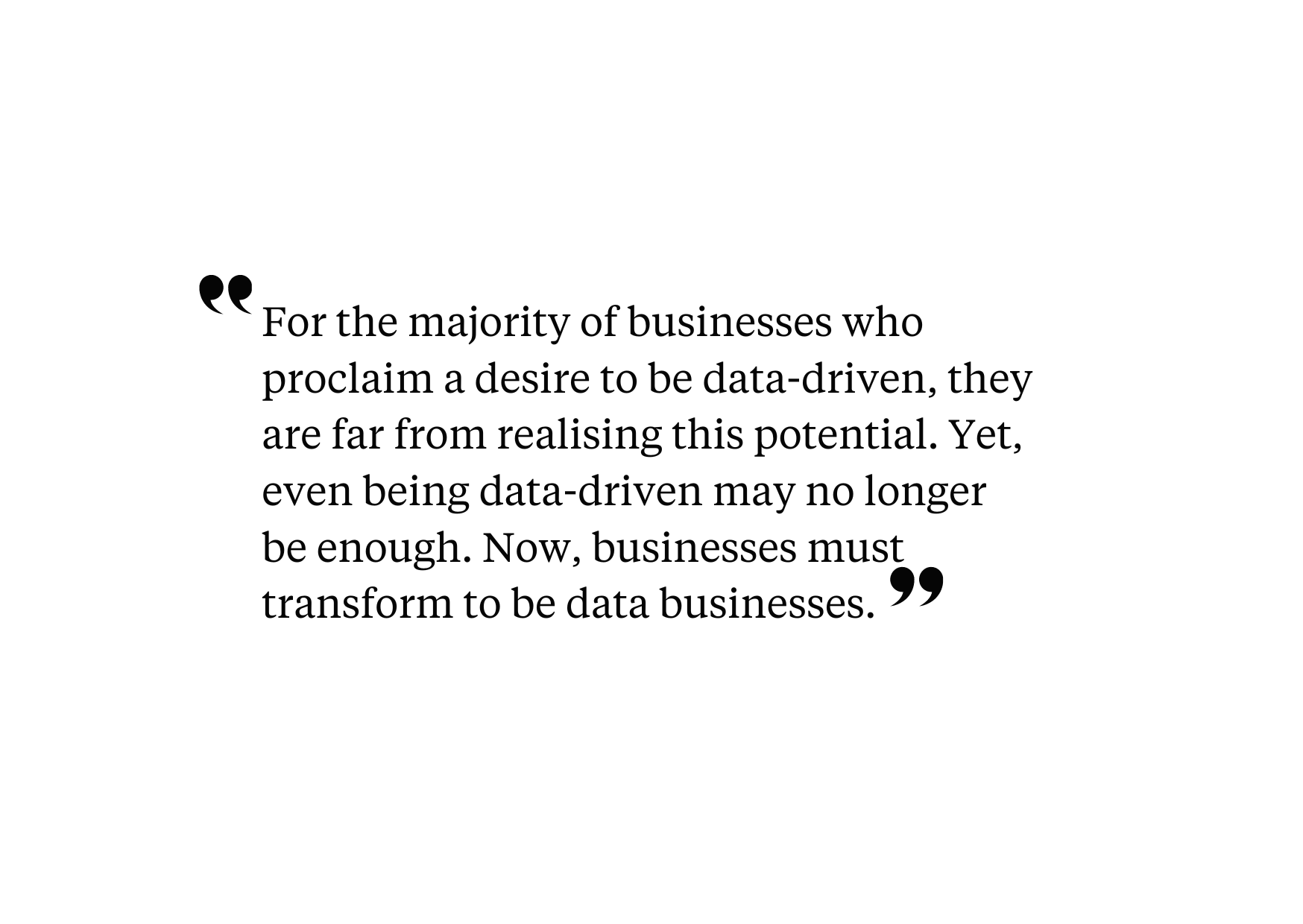
To be data-driven means using evidence and facts to inform actions, rather than relying on intuition or individual observations. The benefit of being data-driven is increasing the likelihood of success, through the enablement of more accurate and reliable outcomes, and the mitigation of bias. Crucially, being data-driven does not exclude experience-driven information, rather it seeks to utilise all information to evaluate and act utilising a scientific approach to enhance outcomes.
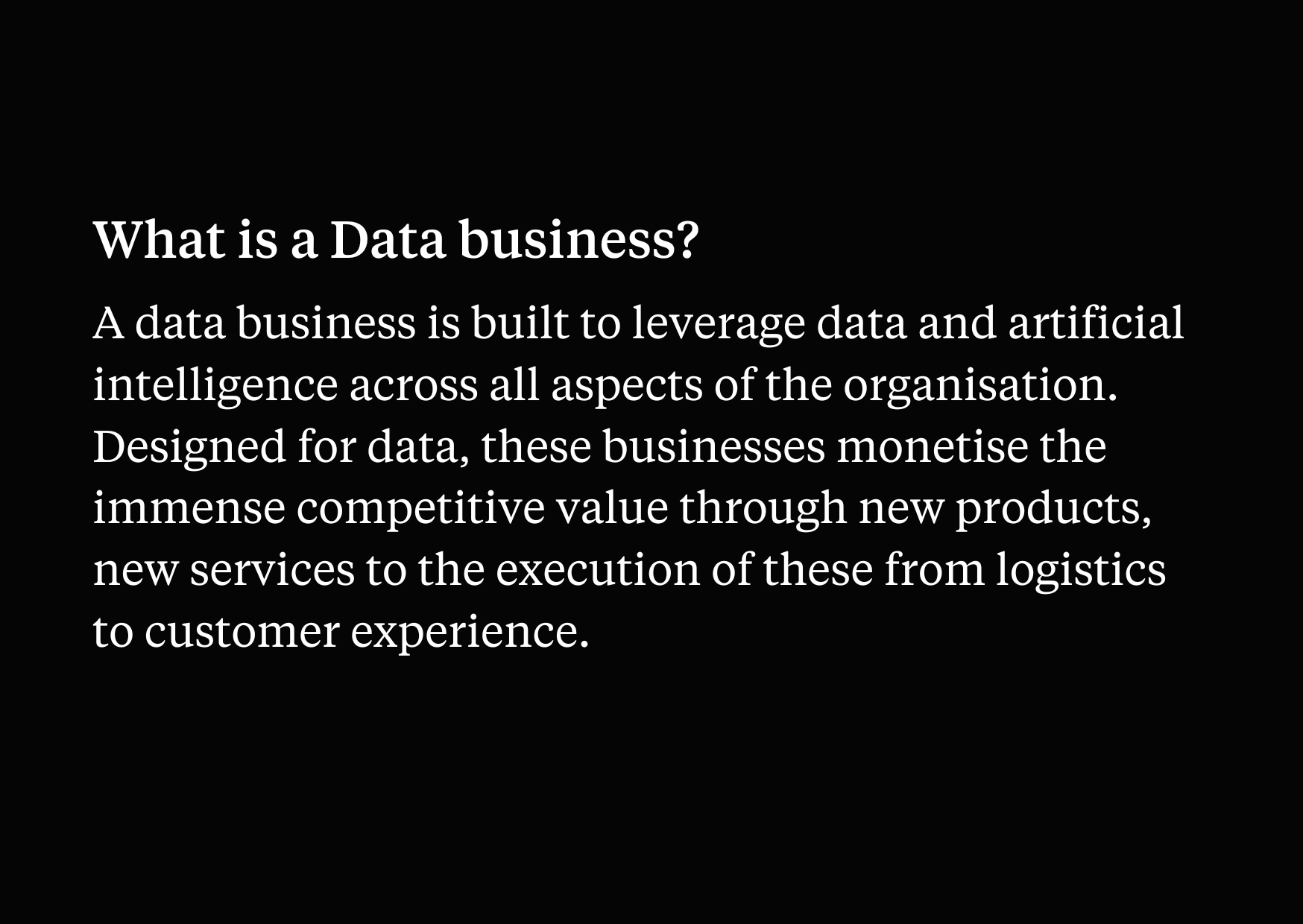
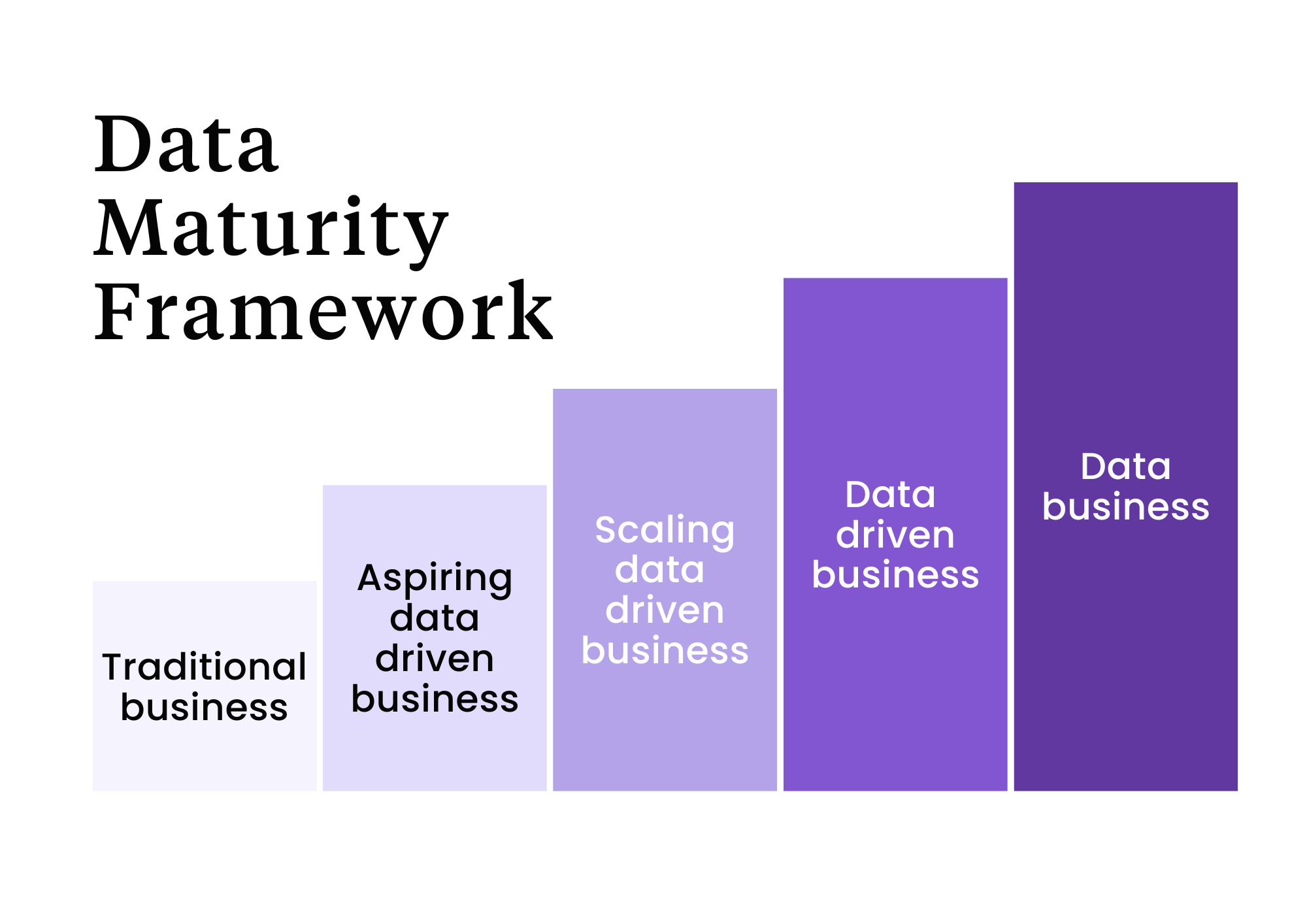
Today, organisations built prior to the existence of modern, cloud-native technologies are struggling to compete in a digital age where new businesses can develop end to end business capability from scratch - fast.
As the global marketplace dynamically shifts, data businesses are innovating quickly and scaling efficiently, setting new standards in customer experience and product innovation, often disrupting traditional industries and creating new markets.
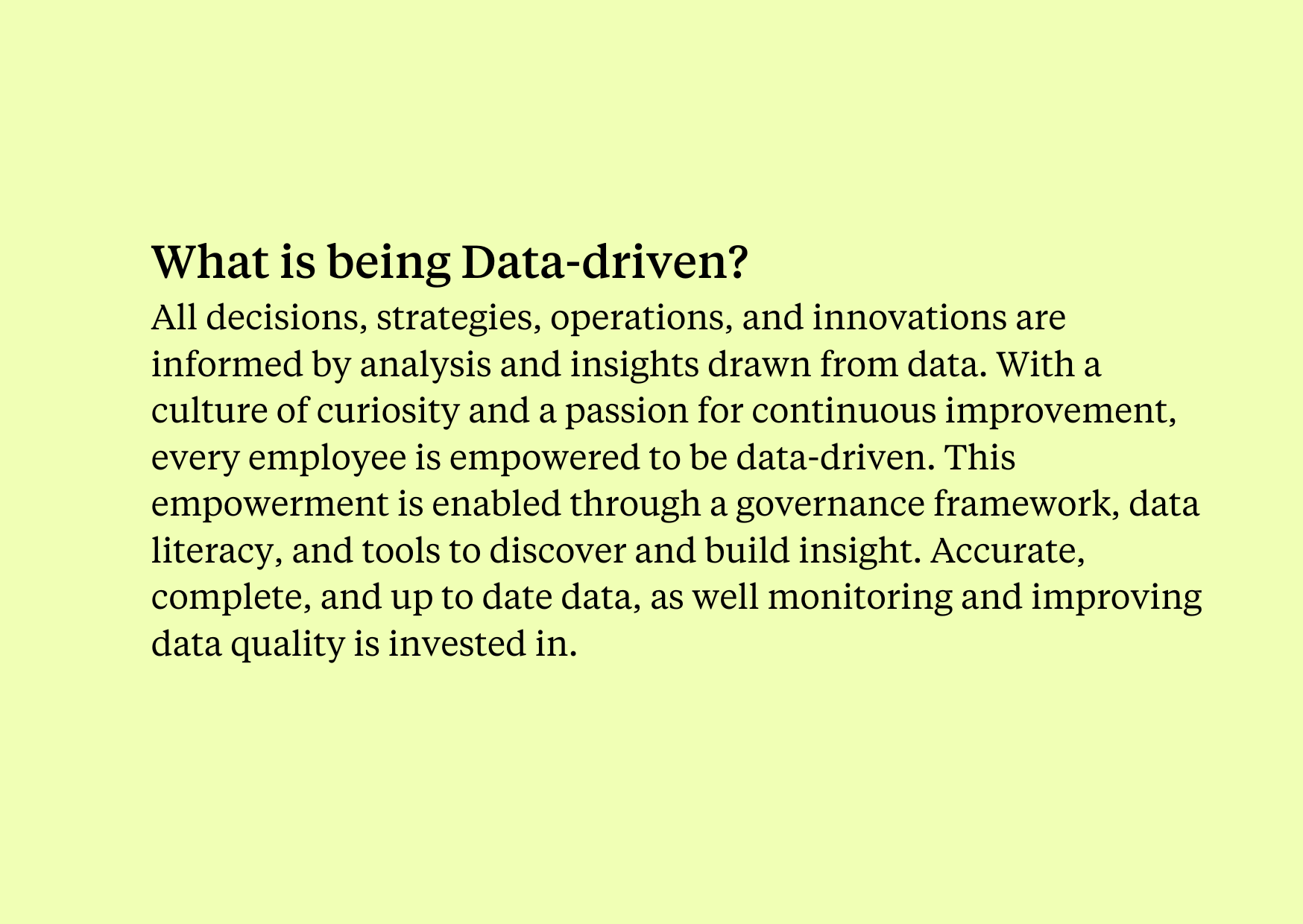
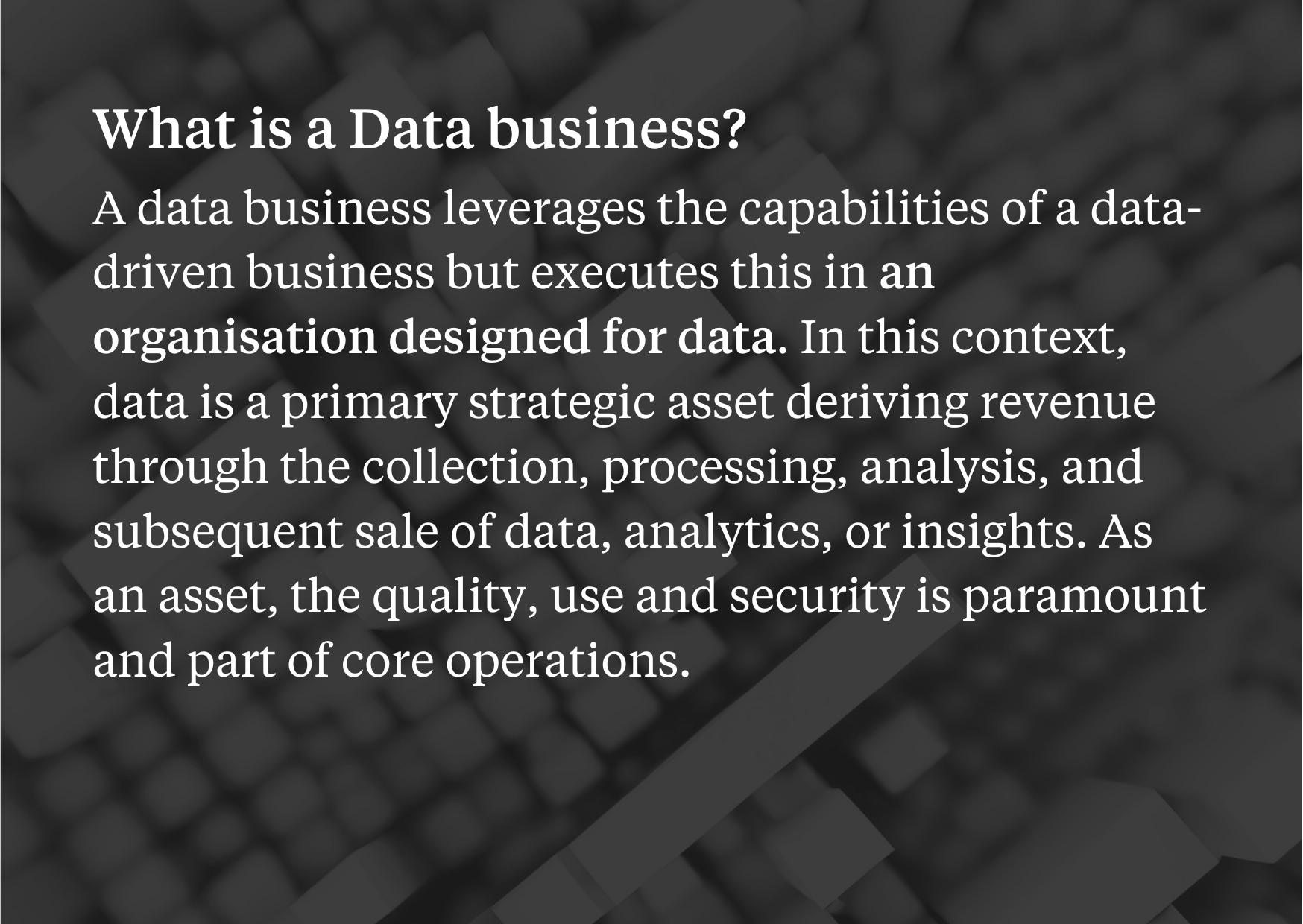
The core product or service of a data business is data. Data and data services are treated like assets to be invested in, maintained, and improved, with the expectation of generating a return on this investment. Data businesses like Netflix and Airbnb have transformed their respective industries by designing services with data as the foundation. Netflix revolutionised the entertainment industry with its data-driven approach to content recommendations, while Airbnb disrupted the hospitality industry by using data to match travellers with unique lodging experiences around the world.
In today's data-rich environment, treating data as a strategic asset drives innovation. Businesses who treat data as an asset identify issues and opportunities sooner, prioritise action, and measure success, justifying additional investment. An added bonus is that curated data assets tend to meet regulatory requirements, mitigating the risk of storing data.
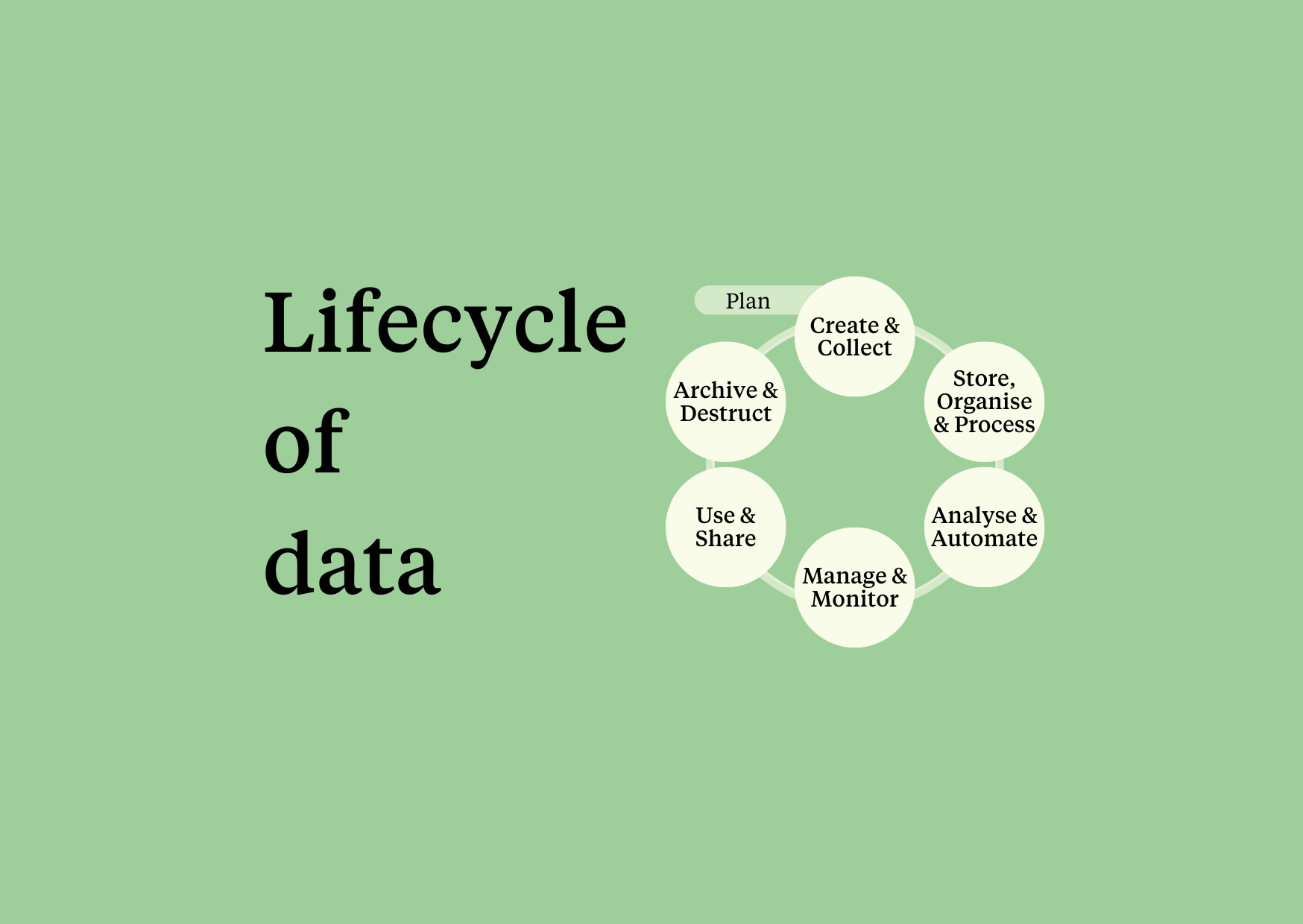
A dizzying array of technologies optimise the data lifecycle, and the associated technical skills are well defined for the large range of professionals that design and deploy data solutions. Architecting a high performing, integrated, and responsive data ecosystem is critical for data-driven businesses and core to data businesses.
Thankfully, many businesses are hyper-focused on the technological and technical components of building data capability. Unfortunately, the same cannot be said for the focus to build the business capability to enable people, teams and organisations to leverage that data ecosystem.
As breakthrough Artificial Intelligence continues to emerge, the gap between the technology and human ability to leverage this grows. Beyond data to AI literacy, staff need the data acumen to safely use technologies and interpret information to move from data to doing. At the individual, team and organisational level, crafting the behaviours, mindset and culture to thrive and reinvent protects your business in the long term.
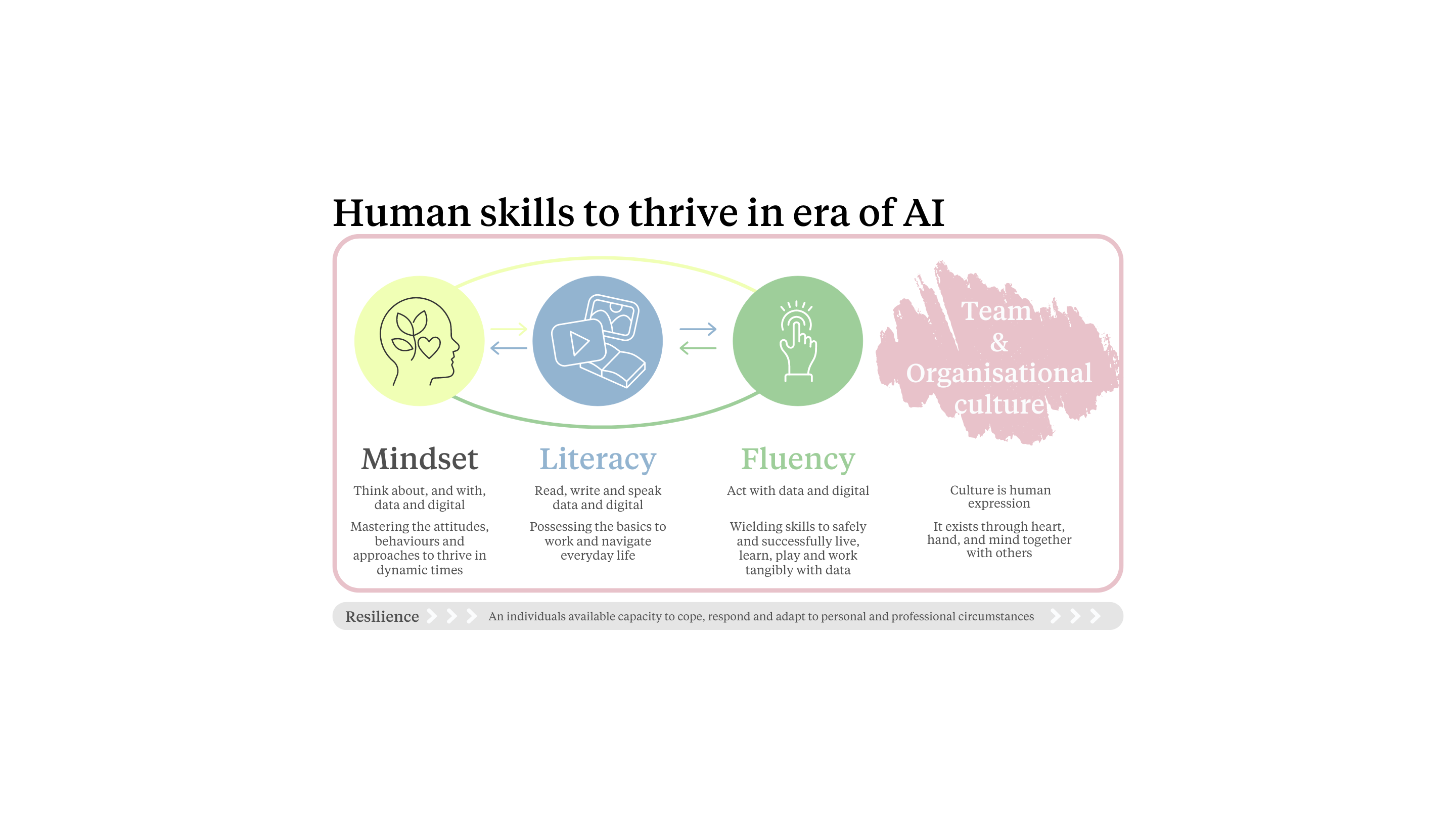
Businesses born prior to the digital age struggle to convert into a data driven approach with legacy systems, siloed data, and outdated infrastructure common. These businesses can also struggle with cultural resistance to change, a lack of data literacy among employees, and insufficient investment to improve data quality, upgrade technologies, and uplift employee skills.
Being data-driven in today's economy is imperative to make informed decisions, drive innovation, and stay competitive. Making the leap to becoming a data business enables the agility and resilience needed in our rapidly evolving digital landscape. To plot a course forward, Executives and Board members must accurately measure their business’ data maturity, assessing data governance, quality, integration, literacy, and capabilities. From there a data strategy and roadmap can be developed based on the desired future state. Importantly, this must include the human and cultural elements the reinvention requires. Alignment to business objectives provides return on investment and ensures continued support towards becoming more data-driven.
We help our clients to adapt and unleash new possibilities. We use our bespoke Decision Intelligence framework to identify where your business is today, and help you navigate what’s next. We design a strategy that suits your business. You can select from a range of:
- Evaluation tools (including industry and competitor insights)
- Education workshops and programs, and
- Strategy approaches to meet your requirements.
We also provide the know-how, tools, and oversight mechanisms that equip Boards to govern AI effectively. Reach out to us today to discuss your needs and explore how we can support you.
Share News
More News
Get In Touch
If you have a problem you'd like us to solve together or if you just want to connect. We're always excited to hear from passionate people looking to make a positive impact.



